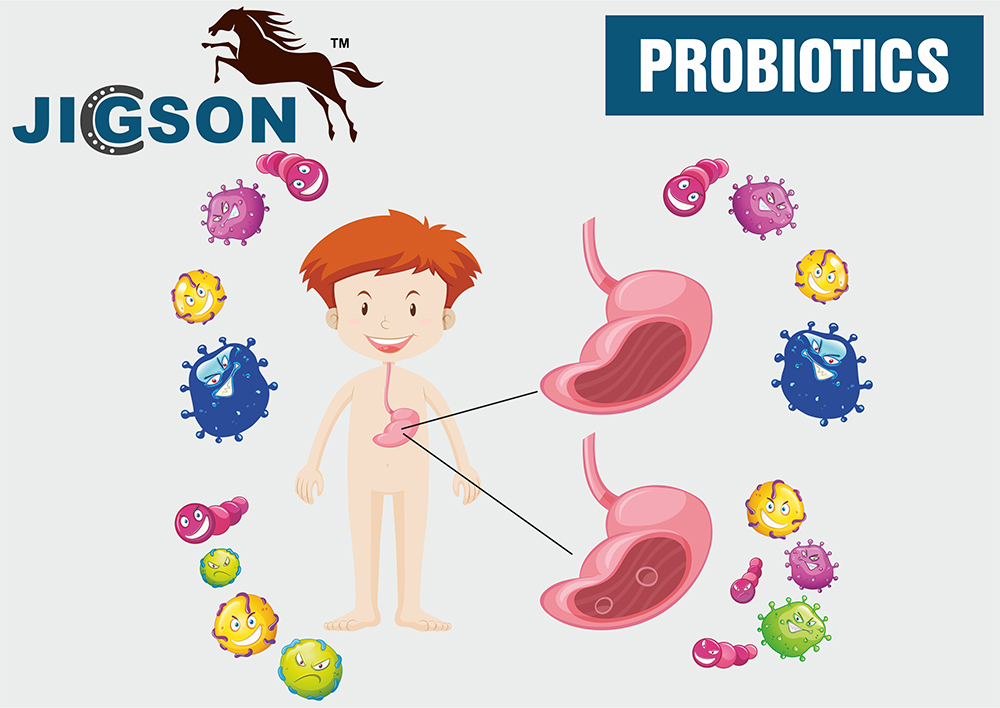
WHAT ARE PROBIOTICS?
Probiotics are live microbes, which when administered in adequate amounts confer a health benefit to the host.
Probiotics are a class of "good" or "friendly" bacteria that are normal inhabitants of the intestinal tract, helping with digestion.
"Bad" or "pathogenic" bacteria on the other hand, can cause intestinal micro flora imbalances and lead to illness and disease like diarrhea.
For example, bacteria that are normally present in our intestines help digest food, destroy disease-causing microorganisms, and maintain healthy Gut Flora, provide immunity booster to body.
Although people often think of bacteria and other microorganisms as harmful "germs," many microorganisms help our bodies function properly.
BACILLUS CLAUSII – A CHOICE OF PROBIOTICS
Probiotics are live microbes, which when administered in adequate amounts confer a health benefit to the host
Bacillus species which are spore forming bacteria have been used as Probiotics for the last five decades. The advantage of spore forming Probiotics over nonspore formers is that they are heat stable and can be stored at room temperature without any loss of viability.
Spore forming bacteria are also resistant to acidic conditions of the stomach (low pH) and hence can survive the transit to reach the intestine. Experimental data suggest that both Bacillus Clausii (B. Clausii) spores and cells can adhere to the bowel wall and colonize the mucosa.
As B. Clausii is extremely stable to acidic conditions, the entire dose of ingested bacteria reach the small intestine intact
